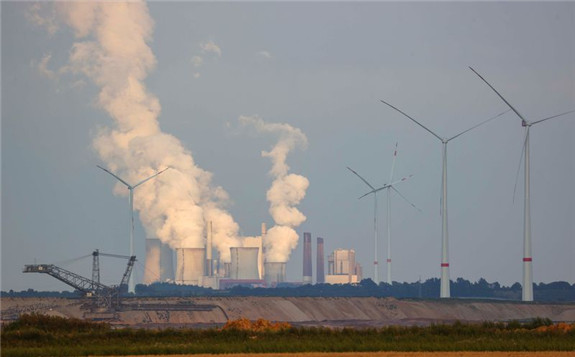One of Germany’s biggest challenges in the fight against climate change is to keep the lights on.

As Europe’s biggest economy shuts its last nuclear reactor next year and utility RWE AG warns that coal plants may close earlier than planned, critics say green energy isn’t being added quickly enough. Germany’s ability to meet peak demand is poised to shrink rapidly over the next two years, increasing the risk of blackouts.
In a last push to save her fading reputation as ‘The Climate Chancellor’ before stepping down after next month’s election, Angela Merkel announced Europe’s strictest emissions goals. But the green power revolution she fronted for almost two decades is running out of steam just as the electrification of the economy will increase demand.
“There is no doubt that security of supply must be high on the priority list of the next government and political action is urgent,” said Alexander Nolden, chief economist at RWE. “The new climate law is a real game changer for Germany. It means a much higher ambition and will demand much higher speed for the changes needed.”
Tight Supply
Germany risks facing a power crunch as it exits nuclear and coal
Merkel admits her government got it wrong. Power demand will probably increase more than official forecasts by the end of the decade, she said in June. A month earlier she recognized that increasing local opposition and too much bureaucracy have curbed investments in green power.
For a long time, Germany showed the world how renewable energy could be added to make up a substantial share of the power mix. Now, the Norwegian utility Statkraft SF says it takes twice as long to build a wind park in Germany compared with the U.S. Complaints from locals, a lack of space, stricter environmental standards and a longer permitting process are just some of the reasons growth is slowing.
Take Roland Schueren. He runs 19 bakeries in western Germany and to save on power bills and help speed up the energy transition, he wants to add more solar panels for his power-hungry ovens and electric delivery vans. But the prohibitive rules are holding him back. He’s now targeting a parliamentary seat for the Green Party.
“We can’t build more photovoltaic, our roofs are full,” he said by phone from one of his shops in Hilden, a small town outside Dusseldorf. “We could rent our neighbor’s roof and build more photovoltaic there, but this is not allowed. The energy transition is slowed down by the government.”
Merkel’s coalition is still ahead in the polls, but the Green Party has emerged as a real contender in the Sept. 26 election. Utilities, energy traders and analysts are pondering what policy changes might come next to help meet the new goal of a 65% reduction of carbon dioxide emissions by the end of the decade.
RWE, which operates coal plants in Germany and abroad, said Aug. 12 that it is “conceivable” the next government will revise the plan to phase out lignite, the dirtiest form of coal. Currently, the exit should be complete by 2038.